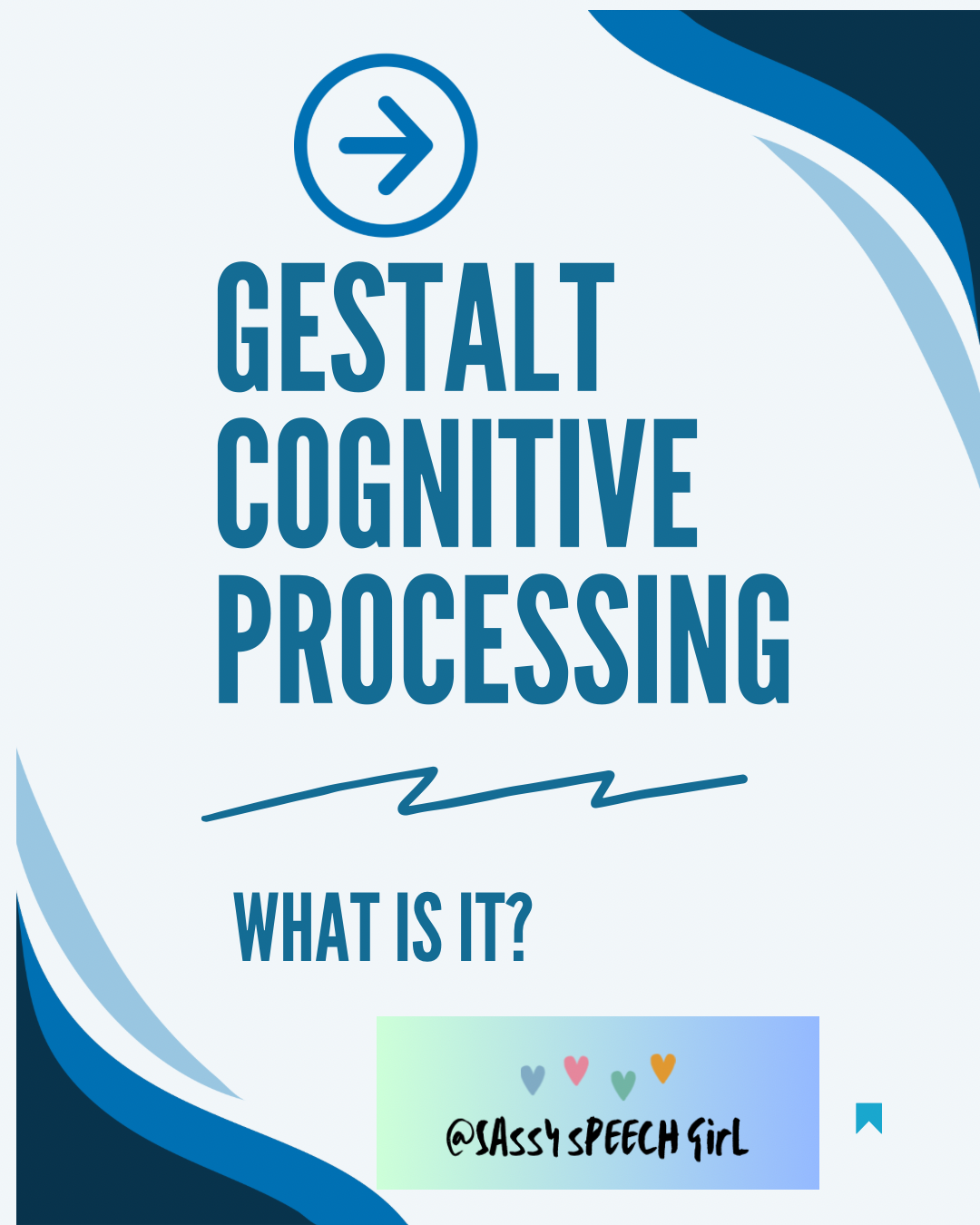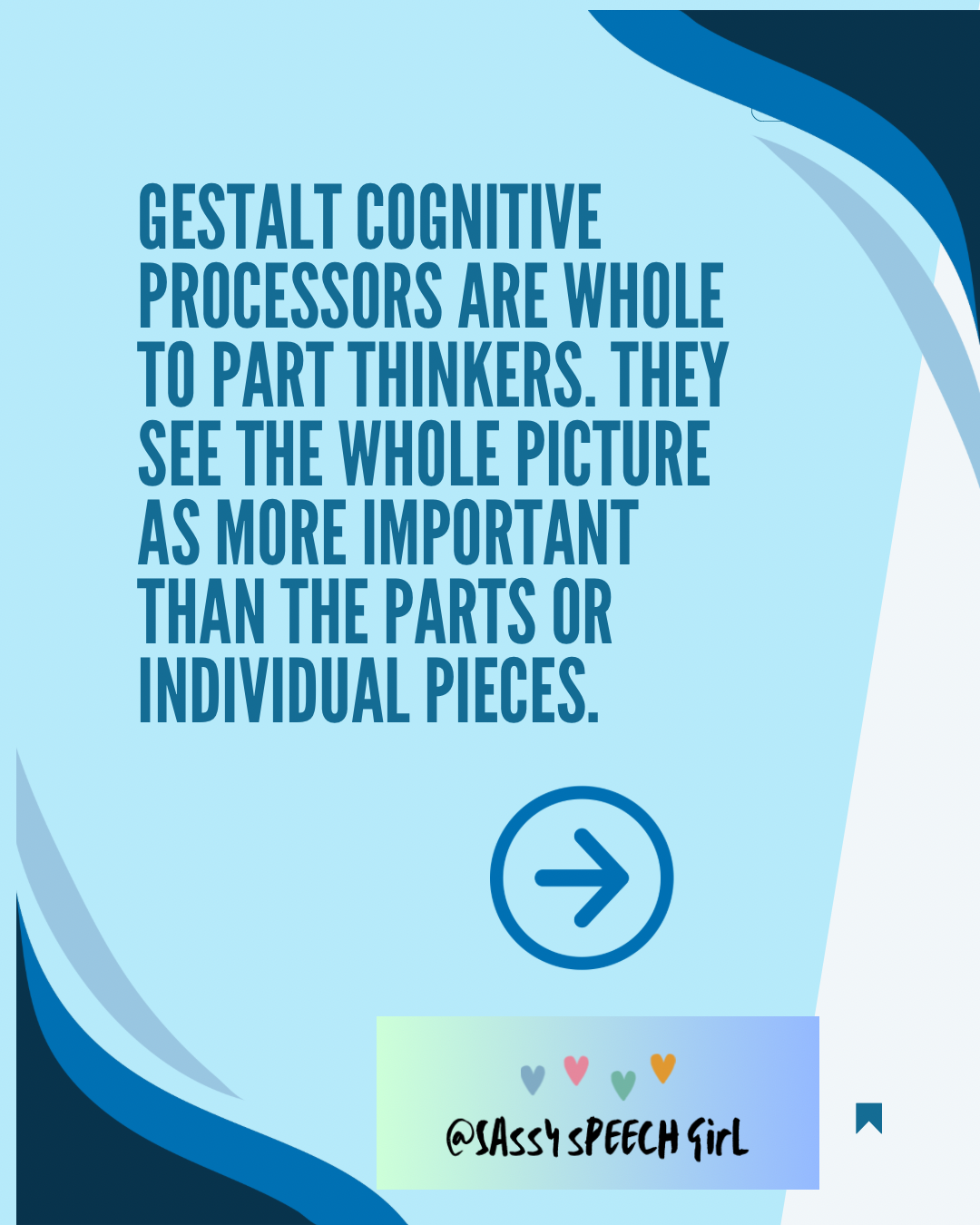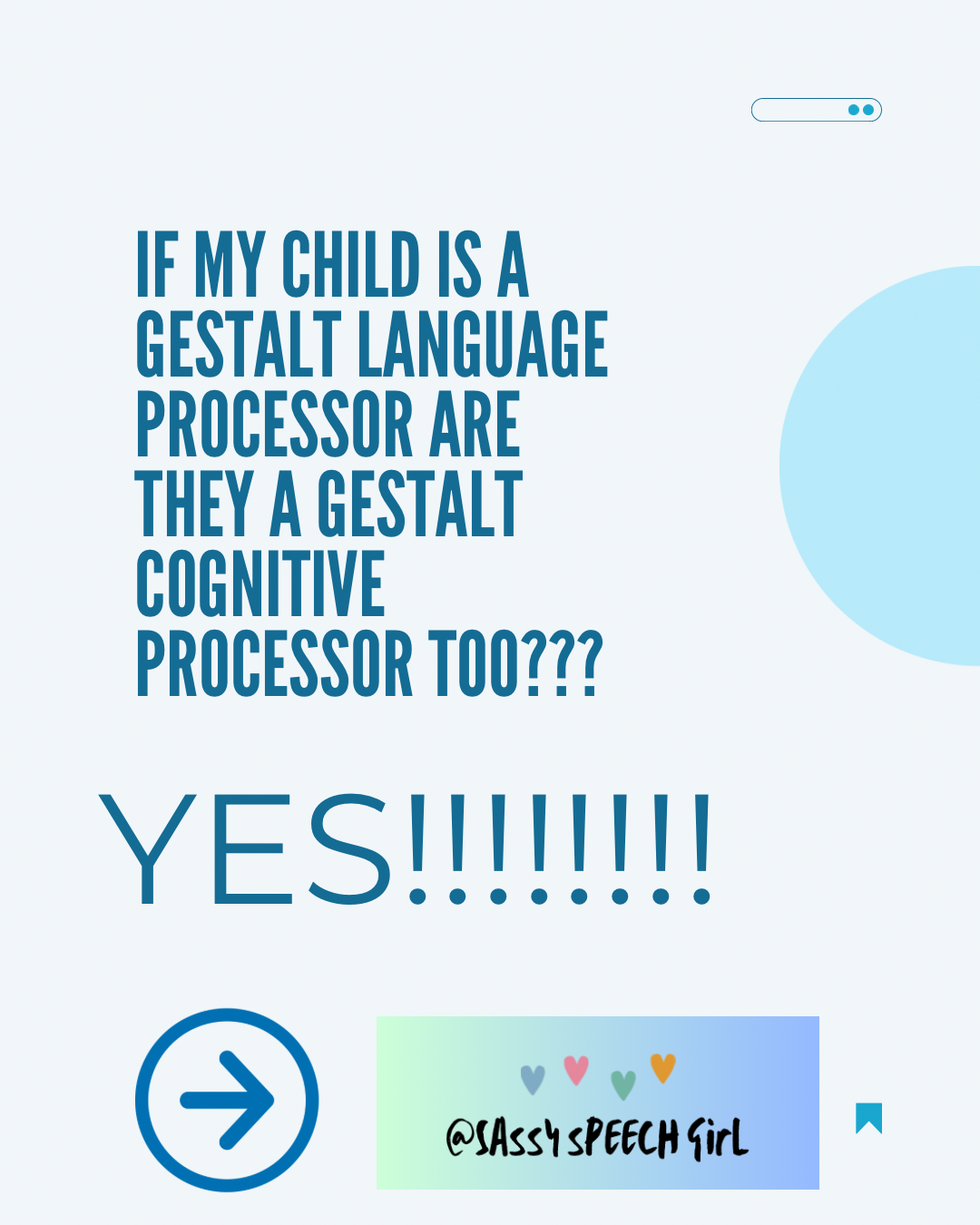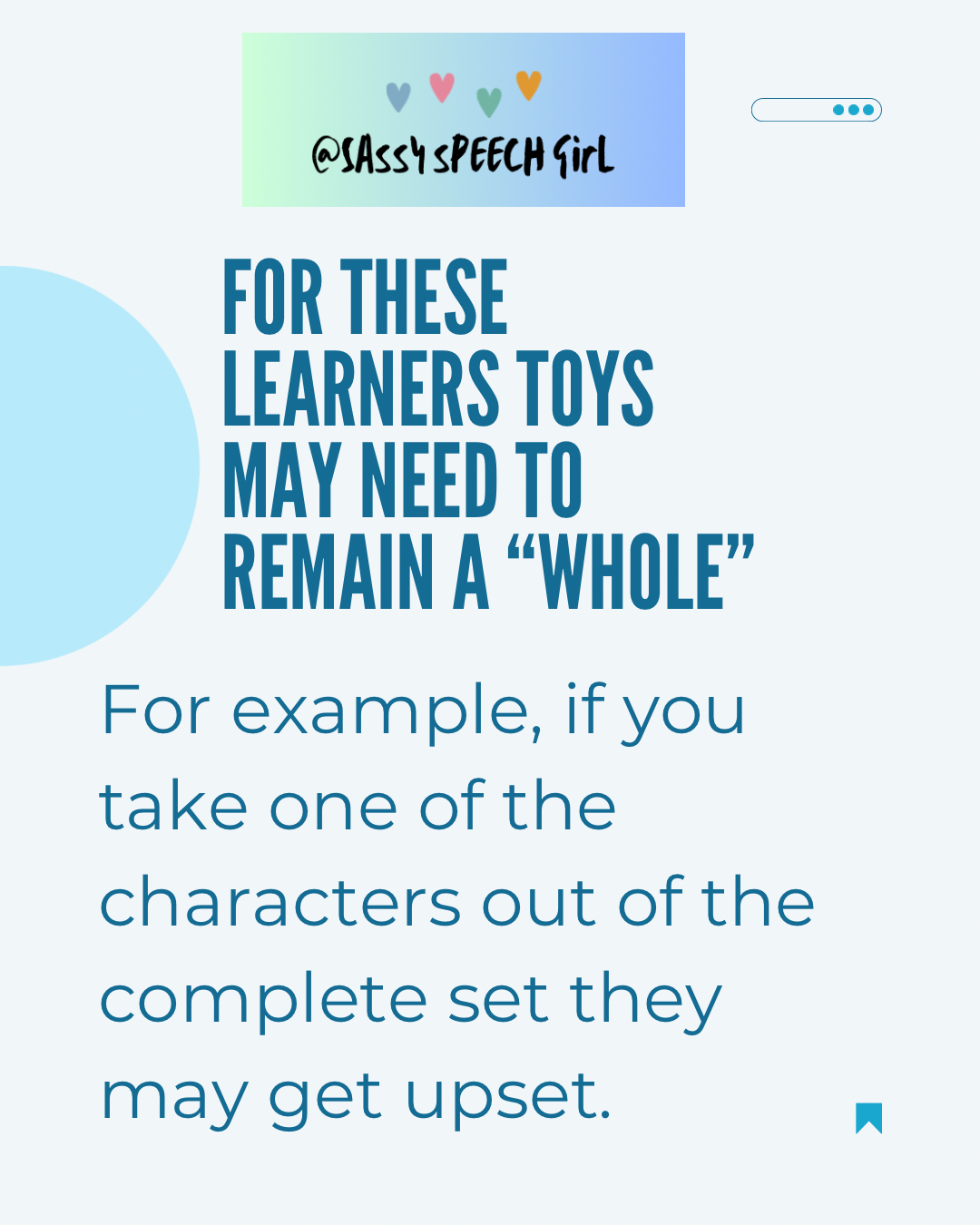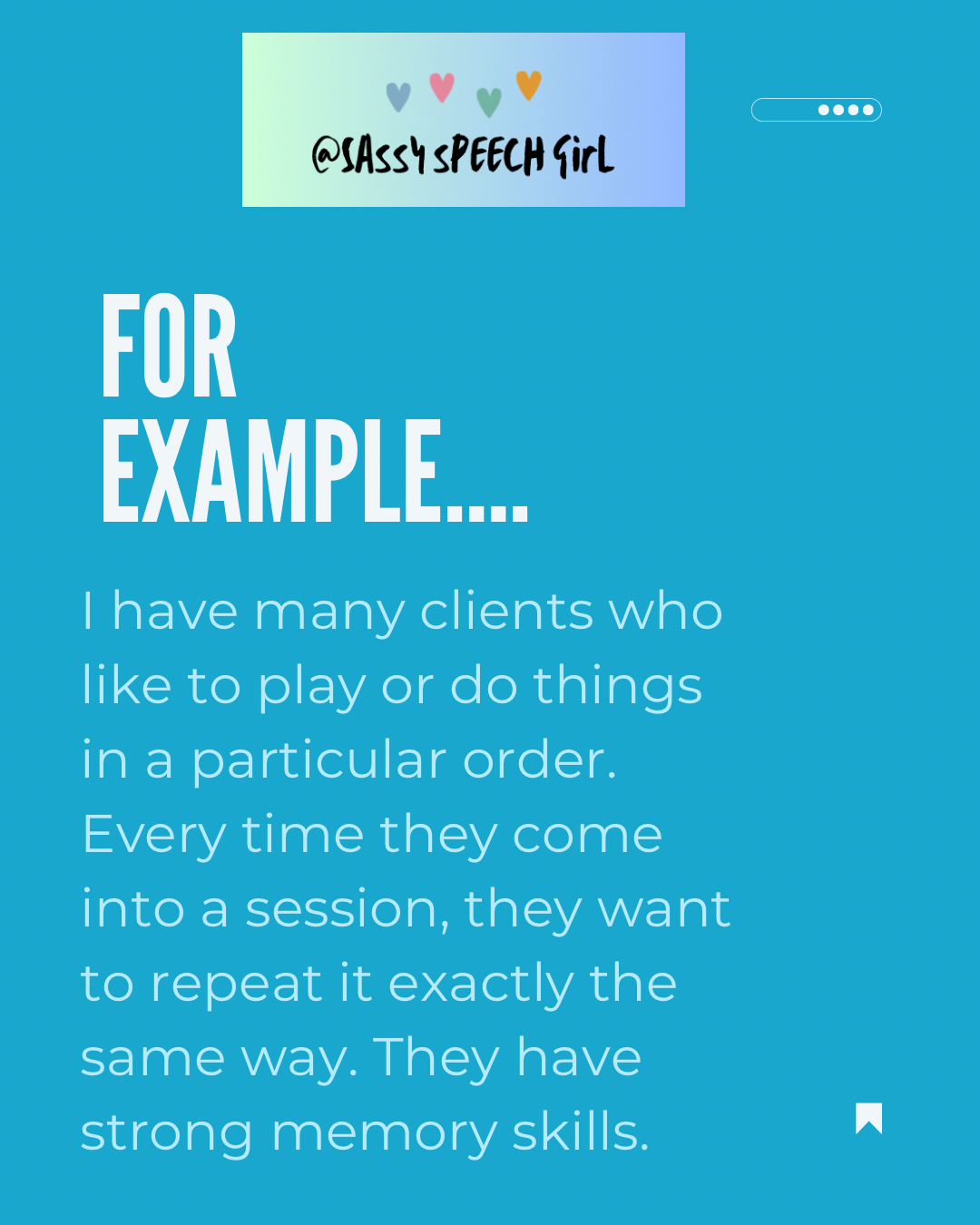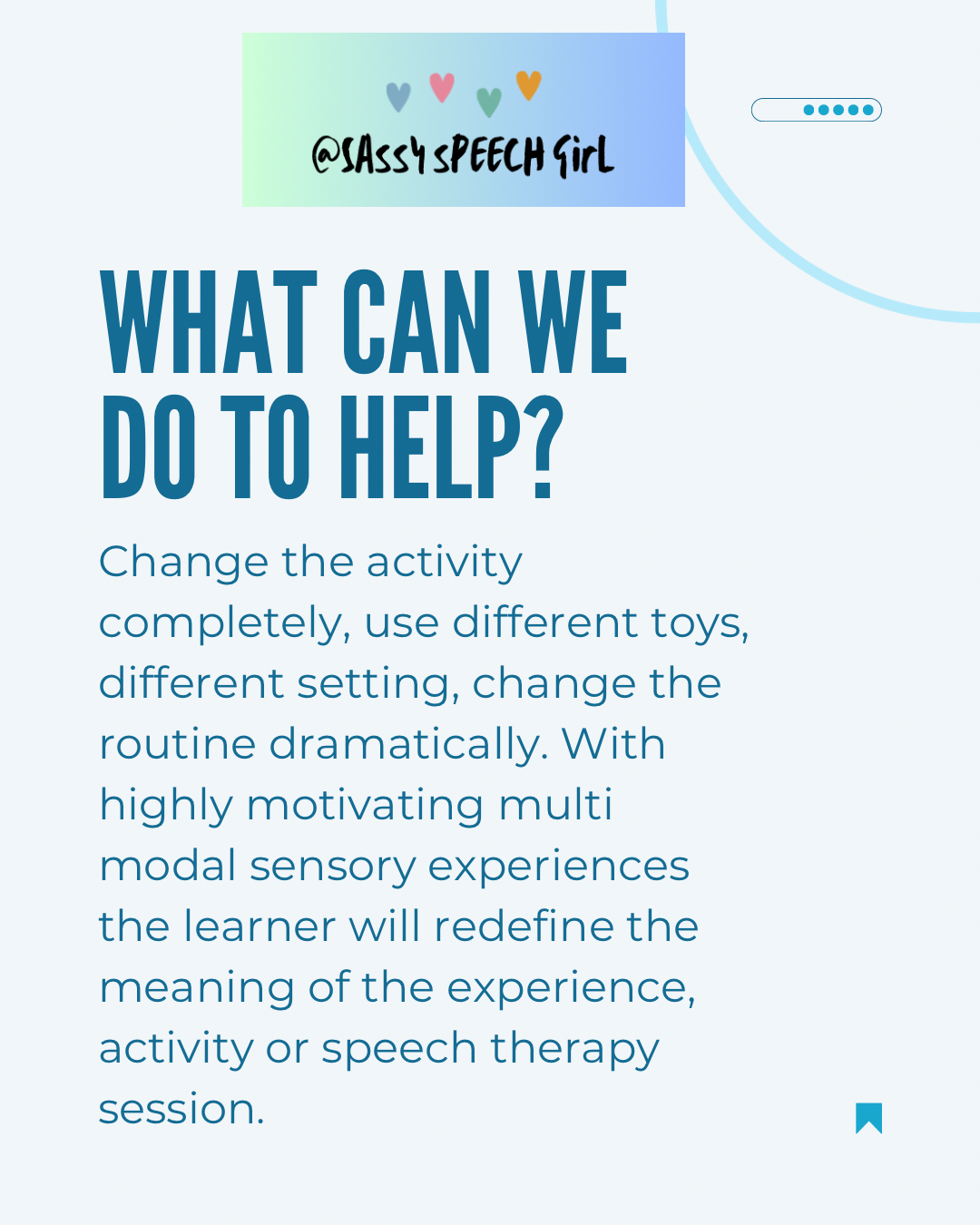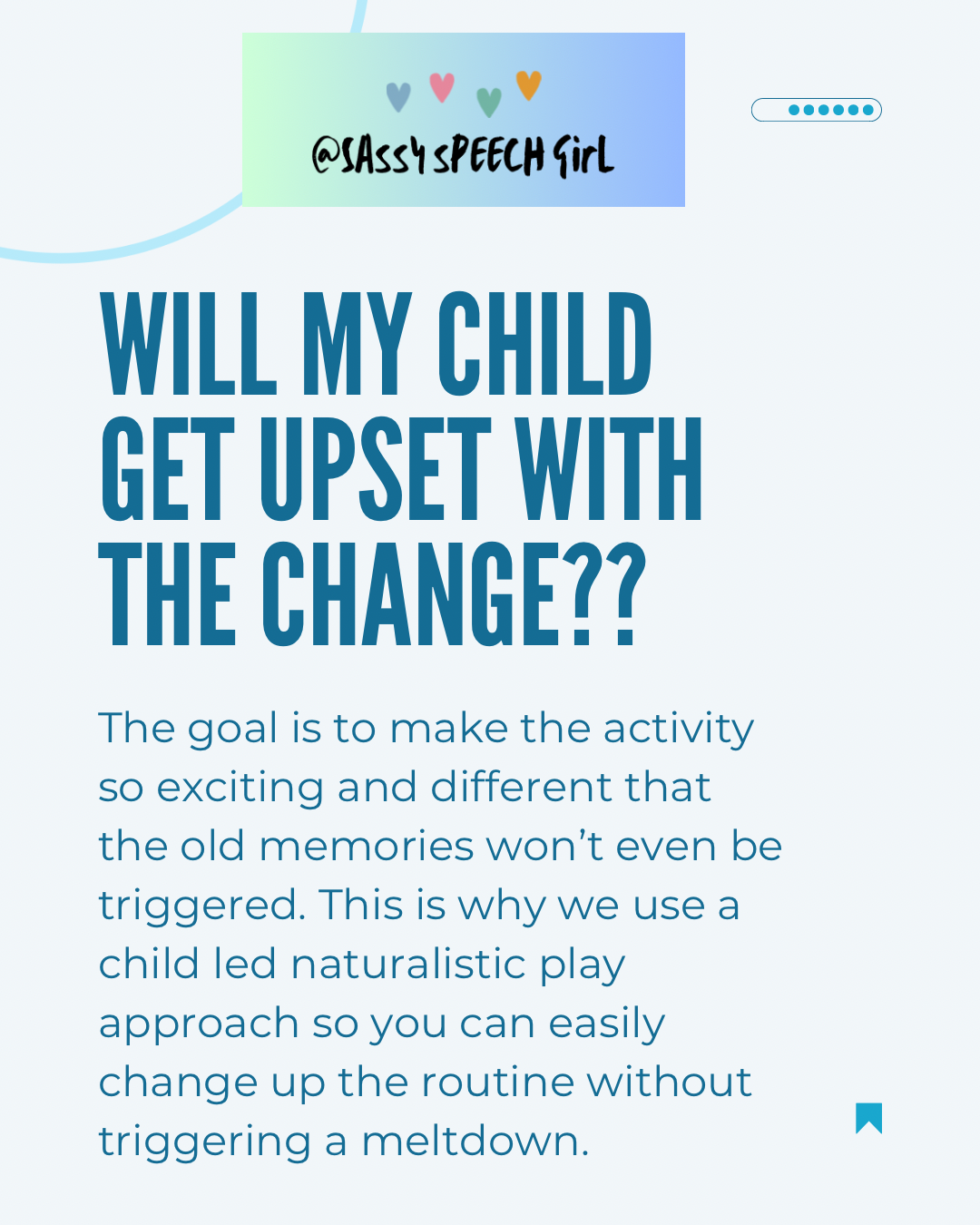What is gestalt cognitive processing??
If your child learns language as a gestalt processor you can bet your bottom dollar they are also a gestalt cognitive processor! It’s the way their brain works and processes information! These kids are our ‘whole to part’ thinkers instead of part to whole. The see the big picture first, before breaking it into smaller parts. Just like they learn language “in chunks” first they also think in “chunks”. Some examples of this type of cognitive processing is a toddler or child who needs to have the entire alphabet set or complete set of lego’s or complete set of their favorite characters and if one piece is missing it throws them into a meltdown. That’s because they need the entire set the “whole.” These kids have strong memory skills and will act out portions of their favorite episodes, repeat steps of an activity in the exact same order it was done once prior. The pattern or routine will become ingrained in their memory especially if it has an emotional connection for them. I once had a toddler who I was seeing that loved for me to chase him. One time he tripped and fell near the table and proceeded to come into my arms for a cuddle. For five sessions after that he continued the exact path to chase, “tripped and fell” near the table and wanted me to cuddle him for a hug. He repeated the exact routine over and over. I see this type of cognitive processing in my Autistic clients a lot. They thrive on predictability and routine. There is nothing wrong with that at all but it is important to understand how our child’s brain works to best support them. One way to help them is to dramatically change the activity, or event, making it exciting and fun, using child led naturalistic play so that the old memories won’t even be triggered. This will prevent meltdown. I do this in my own sessions by using a different room, or putting out exciting new toys and engaging in a new way. The negative to this way of processing is that if a gestalt cognitive processor has a bad experience with someone, something, activity or event, they won’t forget and expect it to be a bad experience again and again for them which can also trigger meltdowns. We don’t want our precious little one’s to live in that state of fight. flight or freeze. so if you’re dealing with a negative reaction to a therapy, birthday party, family gathering, activity, or toy try taking a break from it or changing the way you do it dramatically to ensure a positive experience and new memories! It is also important to make sure that activity or event isn’t over stimulating your child, causing dysregulation and meltdown. You can read more about the sensory system and meltdowns right here on my blog!

